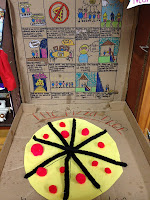***Don't forget to use the LibGuides that have been created for your projects, the databases on the Library's web page, and the Library Catalog! We have lots of PRINT (yes, print) materials that are not available electronically. You may miss some great information if you fail to consult the books.***
Ok, so now on with the Googling. Here are some guidelines to make your searches more efficient and productive:
- Don't ask Google a question! Google is not a person. EXCLUDE words that are unimportant.
- When you have search terms that are phrases, enclose those phrases in quotation marks. This way, Google knows to keep those words together in that exact order. For example, "Colonial America" instead of Colonial America (in which case Google will provide you with search results for the word Colonial and the word America).
- Think about all the possible synonyms for your search terms. How might others say/phrase your ideas? You may want to conduct multiple searches or include multiple terms separated by the operator OR. (e.g. "Colonial America" OR "early American settlers")
- Examine the URL (web address) of your results to see which sites might be the most reliable or useful for you. Remember that the suffix of the URL tells us what type of site it may be. .edu is a university site, .gov is a US government site, .mil is a US military site, etc...
- If you would like to search for information only on one type of site, follow your search terms with site:.edu (or whichever type you'd like). For example:
- "Colonial America" OR "early American settlers" site:.gov




